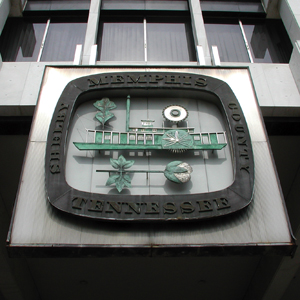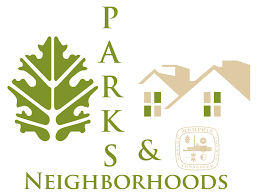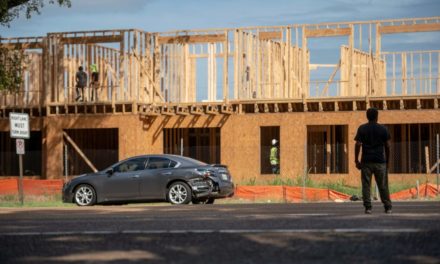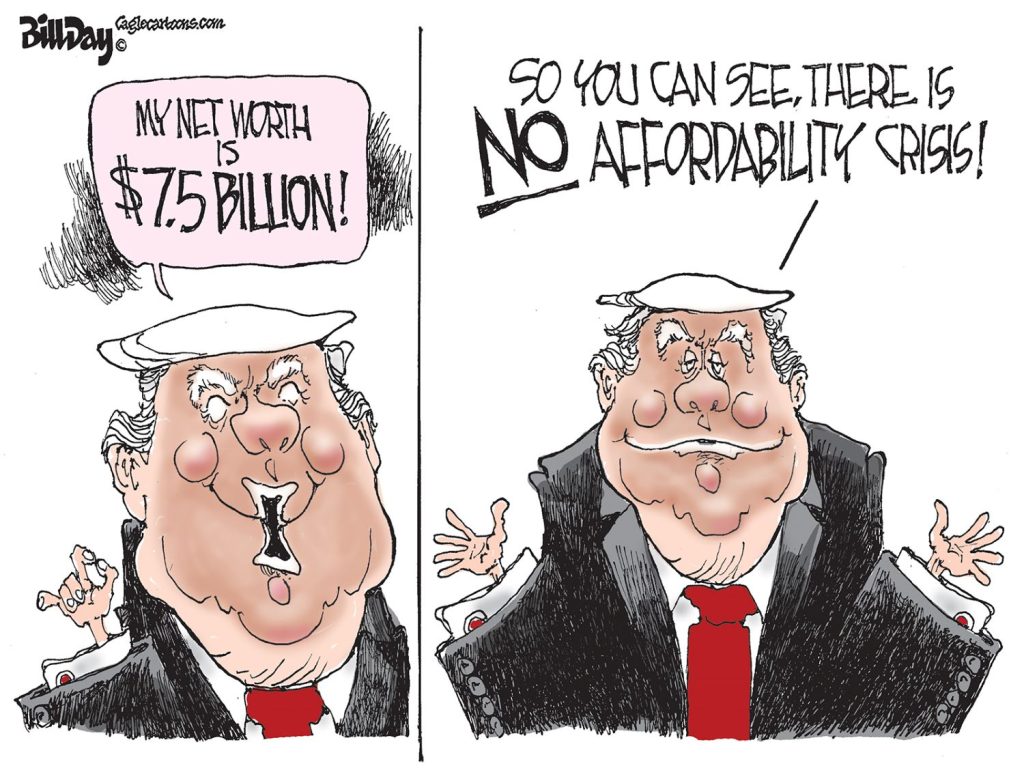Memphians are supportive of changes in police and fire services, but they want more funding for libraries, community centers, and parks.
Those were two of the major conclusions from the public polling that was taken as part of the community engagement program conducted in conjunction with the City of Memphis Five-Year Strategic Plan. The polling, which was conducted by Cardell Orrin of Linx Consulting, was complimented by two other components managed by David Williams of the Williams Company — Imagine Memphis, in which adults and students interview each other about Memphis’ future and public input meetings held at the Central Library, Leadership Memphis, and in every City Council district.
In announcing the public engagement process, Memphis Mayor A C Wharton Jr. said the public’s opinions would be used to shape the city budget, its priorities, and its funding levels.
The final report of the public engagement process concluded: “The average person does not have an accurate understanding of how their tax dollars are allocated; they may have an opinion, but not necessarily an informed opinion – and do not know how the current actual budget is allocated for city services and functions.”
Meeting Conclusions
The 10 public input meetings were organized for participants to recommend how City of Memphis taxes should be spent. To the question of what additional investments they would support even if it meant a tax increase, people in the meetings said 1) Neighborhood redevelopment – 62%; 2) Early childhood education/Pre-K – 41%; 3) Roads and transportation – 41%; and 4) Police – 40%.
Overall, the public recommended cuts to the police division budget by 10%, the fire division by 5%, and the administration by 4%. Meanwhile, they supported increases to business enterprise of 3%; parks and recreation by 3%; roads and transportation by 4%; and libraries, learning and museums by 4%.
Polling Conclusions
As for the public poll, the report said that “generally, citizens would like more services, but struggle with decisions on how to pay for them. With selection of ‘Not Sure’ on questions ranging from 8% – 37%, there is some recognition of how difficult it can be to make decisions that impact the city. Responses across questions tended towards supporting new ways of looking at how government operates. In most cases where that was not the case, there were almost even splits between support and opposition.
“Neighborhoods and services matter to people. Across the board respondents wanted to see greater resources put towards neighborhoods, infrastructure, and other services (libraries, community centers, and parks). As might be expected, respondents who have lived in Memphis less than five years are more open to changes in how the government operates.
The following key findings are highlighted in the final report on the public polling:
Administration and Management:
– While 36% of citizens think the city has too many administrators, more people indicated they were not sure or did not have enough information to know.
– The largest percentage of citizens (31%) think the city does a poor job delivering services, but a majority of people think that the city delivers services as well as can be expected or better.
– Citizens are relatively split on the compensation of city employees and how it compares to the private sector. Even among City of Memphis employees, 33% of them indicated they were not sure of how city salaries compared to the private sector.
– A solid majority of 62% of citizens are open to considering a managed competition model for delivery of city services.
– A data-based approach to making decisions about levels and types of services for neighborhoods makes sense to most citizens (77%).
– 50% of citizens would rather have a higher quality of city services than the lowest possible property tax.
Police and Fire Services:
– Slightly more citizens (49%) support the possibility of closing some fire stations or shifting to ambulance only than oppose (40%) the idea.
– Only 8% of citizens believe that policing is more important than crime prevention programs. Many more (62%) believe that crime prevention programs and policing are equally important. A total of 80% believe in the importance of crime prevention programs.
– Most citizens (60%) are open to a change that allowed civilian city workers to respond to police calls for incidents that don’t involve a crime.
– With a large majority of citizens believing in the importance of crime prevention programs, 50% would support increasing crime prevention and intervention programs even if that meant a reduction in the number of police officers working for the Memphis Police Department.
– A majority of citizens (65%) would support a new city division that included both fire and police services.
Benefits and Pensions:
– A majority of citizens (64%) would support making salaries of City of Memphis employees similar to those in private sector jobs.
– 65% support changes to pension plans to contain future pension costs. The support goes down slightly to 58% when it is indicated that the reforms would be negotiated with labor unions.
– Citizens are split on increasing city employee contributions to health care costs, with slightly more supporting (45%) an increase than not (38%). City of Memphis employees who were respondents to the survey were similarly split with 47% supporting an increase and 40% opposing.
– In order to meet its pension obligations to employees, citizens were clear that they did not want a property tax increase to pay all or most of the obligation. Besides this, citizens were less sure about other options presented. More citizens supported freezing cost of living adjustments (47%) than reducing benefits to current employees (37%).
Neighborhoods:
– In characterizing funding by the city for neighborhoods, 50% believe the city should spend more money on neighborhoods, although 25% of citizens were not sure about the funding levels they expected.
– When given a choice on reducing property taxes or spending more money on neighborhoods and blight, citizens leaned more heavily (60%) towards spending money on neighborhoods.
– While eight of the city’s community centers have low utilization, citizens would much rather see changes that keep the centers open and partnering with non-profits or working harder to increase usage (69%) than closing the centers or keeping them underutilized.
– A vast majority of citizens (88%) believe it is important to maintain or increase funding for parks, community centers, and libraries.
– Although they believe in the importance of libraries, community centers, and parks, they were split on how to fund them. Slightly more people would support an increase in the property tax (46%), but citizens were clear (60%) that they would oppose reducing funding for police and fire to fund parks, community centers, and libraries.
– In gauging priority of taxes versus quality of city services, 50% of citizens counted higher quality of services higher than getting the lowest possible tax rate (37%).
Budget:
– More citizens (38%) supported a mixture of property taxes and adding or increasing fees to raise revenue. The responses brought to light the difficult decisions that the Mayor and City Council face with 37% indicating they were not sure which option is best.
– A majority of citizens (64%) believe that more investment is needed for maintaining the city’s infrastructure like roads and sidewalks.
– Citizens like the idea (82%) of finding ways to have people who do not live in Memphis but work or visit Memphis assist in raising revenue for the city.
– Again showing the difficulty of running government, most citizens (36%) were not sure how the city should address the decrease in revenue that has come from and decrease in property values resulting in lower revenue from property taxes. The solution most supported (32%) was cutting services provided by the city.
Business Enterprise:
– A majority of citizens (61%) believe that it is important to waive taxes for businesses that promise to increase jobs by moving to Memphis or expanding.
– Citizens largely support (78%) the idea of asking large non-profits like hospitals and universities who do not currently pay property taxes to make voluntary payments for services the city provides to them.
Waste Management:
– Citizens are very split on the prospect of charging households an additional fee for picking up more trash than a basic level of service would provide. Support (45%) and opposition (47%) were almost even for the recommendation.
– Almost all citizens (except 1) supported changes to the trash pick-up system that allowed fee increases or decreases based on location.
– Citizens widely support (74%) developing a system that gives households an incentive for recycling.
Education:
– Although the city will no longer be required to fund education in 2014, a large majority of citizens (71%) support the city continuing to contribute to education.
– Consistent with other findings, citizens would rather fund contributions to education by reduced spending on other city services (52%) than increasing property taxes (7%) or fees (15%).
To read the report, click the following: Public Input for Five-Year Strategic Fiscal Plan_final






I disagree greatly with your results. I live in east memphis and neither I nor several of my neighbors were contacted for this “study”. While I don’t love the idea of higher taxes I do understand that it is needed to maintain services when the city is shrinking. I also understand that the idea of closing fire stations is ridiculous! Has no one noticed how many fires we have in this city? Sure you can look at a map and see that we have a fire station here and there but what happens when that fire station is on a call? Now consider that the next closest was closed? The closing of fire stations has a ripple effect. The effect WILL put us all at risk. Less police? Are you sure about that? Do you feel safe enough to leave your doors unlocked? I don’t! Sure we need more people repairing the streets and we need our libraries but we don’t need all the mayors pet projects. The way to pay for this is simple. You support core services such as sanitation, street repair, police and fire and you put the others on hold until you are back on your feet. If you can’t pay your bills you don’t go buy a new car. If you can’t keep the lights on you need to cut the cable not the power. We things get tight at my house I don’t stop going to the grocery store or stop paying MLGW. I stop going out for coffee and dinner.
It’s not a study. It’s a scientific poll. But the fact that the public polling results were ratified in the public input sessions strongly suggest their validity.
Memphis has more fire stations than other comparable cities, but in truth, we don’t have fire stations. We have EMS stations. There are 10 times more ambulance calls than fire calls. And the fact that the densities in many of these neighborhoods are only one-third also points to the fact that fire stations’ locations are largely serving a city that doesn’t exist anymore.
As for the police, 500 commissioned officers have been added in recent years but there has been no increase in officers on the street. Again, we have more police than comparable cities, and more to the point, there is no connection between the size of police forces and crime rates. We need to police smarter, not just keep thinking that hiring more and more police is the answer.
Those are our opinions, but back to our original point, this poll doesn’t reflect our opinions. It reflects the opinions of Memphians.
thanks for sharing the facts – tired of hearing people’s opinions that are just that and have no basis in reality and the current state of affairs. crime rates make people in this town think that the # of police on the street is directly related to the rate of crime, but if you look at how other cities have successfully reduced the # of feet on the street and reduced crime levels, it’s apparent that there are more variables at play. we need to be wiser about how we’re using our police and fire resources.
I for one find hope in the idea that at least some in this city realize that continuing to bend to the demands of the MPD, MPA and the MFD will not result in the higher quality of life necessary to reverse current trends.
To some of the points made in a previous post-
First, the number of fires occurring in a city is not directly correlated to the number of fire stations or the size of the staff occupying those stations. One of the purposes of the fire department is to mitigate the impact from a fire. The number of fires occurring in a city has a much stronger correlation with issues such as the quality and age of structures, code enforcement, poverty levels and vacancy rates. Those later issues fall squarely outside the definition of “core services”.
Second , as to number of fire stations, one need look no further than a map to see the oversaturation provided in some areas (obviously based on long gone land use patterns). The Uptown area is 1.5 miles east to west and 2.5 miles north to south. Within that area- despite block upon block where there are more vacant lots than homes, businesses or industrial facilities- there are still no less than 4 fires stations. Some of these locations are less than one mile from the next closest station.
Third, feeling safe enough to leave one’s home with the doors unlocked is not only a unrealistic goal, it is unwise as well. Even while living in the nation’s safest major city, I still locked my doors as did anyone else with any common sense. We now have too much information that in no uncertain terms tells us that a larger police force does not equate to a reduction in crime. The inability of the MPD to utilize (or understand) the Blue Crush program as it was intended to be implemented is enough for me to resist any calls for maintaining (much less increasing) their share of public funding.
If all the city does is provide “core services”, Memphis will be resigning itself to a peer grouping with communities like Tupelo, Dyersburg, Forrest City and Batesville except the tax rate will be at such levels I doubt the ability of the city to maintain even that level of standing. Why would anyone chose Memphis or the surrounding area to live or work when so many other communities in the southeast have similar tax burdens and yet are able to support great (and well maintained) public parks and spaces, higher quality mass transit, public libraries and all sorts of other civic amenities in addition to comparable or lower crime rates, comparable or higher quality schools, and roads that are in far better condition?